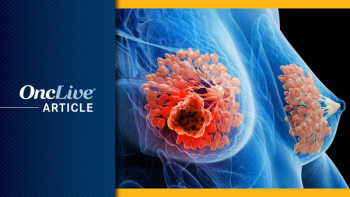
Supplements and Featured Publications
- Recent Advances in HER2+ Breast Cancer
- Volume 1
- Issue 1
Dr. Hart on Detecting and Treating Interstitial Lung Disease in HER2+ Breast Cancer
Lowell L. Hart, MD, FACP, discusses detection and treatment of interstitial lung disease for patients with HER2-positive breast cancer who received fam-trastuzumab deruxtecan-nxki.
Lowell L. Hart, MD, FACP, scientific director of clinical research at Florida Cancer Specialists & Research Institute, and associate professor of internal medicine at Wake Forest School of Medicine, discusses detection and treatment of interstitial lung disease for patients with HER2-positive breast cancer who received fam-trastuzumab deruxtecan-nxki (Enhertu; DS-8201).
The best way to detect interstitial lung disease early is to keep a high index of suspicion and closely monitor patients for unexplained cough, pulmonary symptoms, or shortness of breath upon exertion, explains Hart. If patients exhibit any of these symptoms, they should get imaging, such as a CT scan. If interstitial infiltrates are found and the patient does not have an infection, the interstitial lung disease is likely related to the drug, says Hart.
To treat drug-related interstitial lung disease, the patient must stop treatment and begin therapy with steroids, whether oral prednisone or intravenous steroids, according to Hart. If the patient requires hospitalization for interstitial lung disease, Hart recommends getting a pulmonary expert involved.
Articles in this issue
about 6 years ago
Dr. Hurvitz on Therapeutics for HER2+ Metastatic Breast Cancer



































